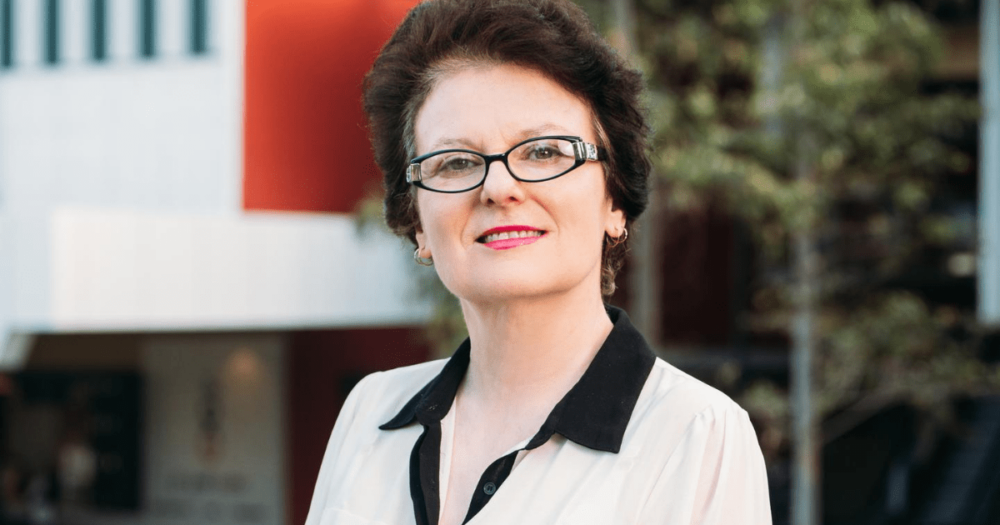Griffith University researcher Professor Brigid Gillespie of the School of Nursing and Midwifery shares the importance of research in patient safety.
Throughout her career, Professor Brigid Gillespie has authored over 160 peer-reviewed publications and 5 book chapters. In recognition of her service to operating room nursing in relation to education and research, the Australian College of Perioperative Nurses (ACORN) awarded Prof Gillespie Life Membership to the Association in 2017. Today, she continues her research in patient safety, contributing to several key areas of clinical research in patient safety.
“It sounds obvious, but patient safety is really putting the patient at the centre of everything we do,” says Brigid.
“Patient safety is about using evidence to inform the structures and processes of care to improve outcomes for the patient throughout their care trajectory. It’s about using the best evidence and ensuring our hospital policies are current and based on that evidence as well.
“Everything we do as nurses focuses on keeping patients safe, from checking their name and confirming their ID and procedure before a surgery, to one of the many other procedures we perform on a daily basis.”
Brigid has several areas of interest in her research, with her clinical experience as a surgical nurse forming the basis for one interest area – safety in the operating room.
“Healthcare is built on teamwork, so it’s necessary to have people from different specialty areas in an operating room working together to provide a patient care,” she says.
“An interdisciplinary team consists of nurses, technicians, radiographers, surgeons, and anesthetists, and they all bring their own learning and expertise. Coming from different discipline perspectives makes it extremely important that communication processes we’re using are standardised across that team to ensure that everyone is on the same page.”
Brigid’s other research area centres on preventing wound complications that occur because of surgery, prolonged bed rest and limited mobility while in hospital.
“Hospital acquired pressure ulcers are a mostly avoidable adverse event. These are injuries to the skin and tissue, primarily caused by prolonged pressure on the skin, and while they can happen to anyone, they usually affect people confined to bed or who sit in a chair or wheelchair for long periods of time,” Brigid explains.
Prevention of postoperative wound infections that occur following surgery is another important area Brigid’s research focuses on. Surgical wounds are the most common wounds seen in hospitals and if they are not managed properly, can increase the patient’s risk of developing a surgical site infection.
But, as well as implementing clinical strategies that focus on preventing hospital acquired wound complications, it is important to give patients enough information to help them make decisions.
“As part of prevention, we can talk to our patients about what they need to do to self-manage their hospital recovery, giving them information and strategies that can readily be used, to avoid pressure ulcers and surgical wound infections developing” says Brigid.
“So much of nursing is about prevention, particularly when it comes to patient safety – that prevention is made much easier when we involve the patient in the discussion.”
Brigid says this research and the research of her colleagues inform the curriculum for nursing at Griffith University and feeds into the School of Nursing and Midwifery’s ranking as the number one in Australia and the number two in the world.
“In terms of the curriculum, and our Bachelor of Nursing program, the research we and others undertake underpins what we teach about safe, patient-centered, fundamental nursing care,” she says.
In 2020, which has been recognised as the WHO Year of the Nurse and the Midwife, Brigid brings her knowledge from this research to her Griffith University role of Doctoral Supervisor. She has an extensive clinical background in operating room nursing and has worked across the private and public sectors for many years before entering the tertiary sector. In recognition of the impact of her research in the operating room and wounds, she was one of only 19 nurse researchers worldwide to be inducted into the Sigma Theta Tau International Nurse Researcher Hall of Fame in 2020.
If you would like to start or further a career in nursing, join Griffith University for the Bachelor of Nursing or our wide range of post-graduate study options, such as the Master of Infection Prevention and Control and the Graduate Certificate of Acute Care Nursing.



